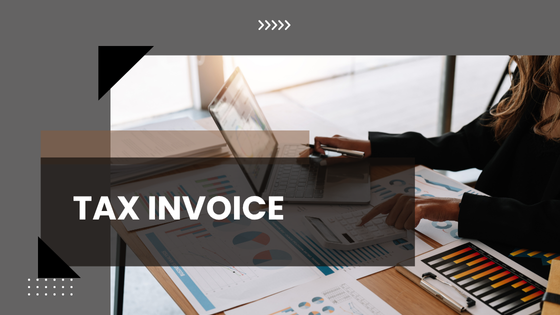Tax invoices are essential documents in financial transactions, serving as proof of purchase and facilitating tax compliance. They play a crucial role in business accounting by ensuring accurate financial records and supporting tax return filings. Understanding their impact can help businesses optimize financial operations while staying compliant with tax regulations.
The Role of Tax Invoices in Accounting
As you can อ่านได้ที่ erppop.com – Tax invoices provide a clear record of business transactions, making them indispensable for bookkeeping. Every invoice issued or received must be documented properly to ensure accurate financial statements. These documents help accountants track revenue, expenses, and tax obligations, enabling businesses to maintain transparent records.
Tax invoices are also vital for reconciling accounts. By cross-checking issued and received invoices, businesses can detect discrepancies early, avoiding errors in financial reporting. Automated tax invoice management systems, such as ERPPOP Tax Invoice Software, streamline this process by ensuring accurate data entry and real-time tracking.
Tax Invoices and VAT/GST Reporting
For businesses subject to VAT (Value-Added Tax) or GST (Goods and Services Tax), tax invoices are crucial for filing returns. Tax authorities require businesses to document all taxable transactions to calculate tax liabilities or reclaim tax credits. Without proper invoices, companies may face challenges in proving their tax obligations or claims.
ERPPOP simplifies VAT/GST reporting by automatically calculating tax amounts based on transaction data. The system ensures businesses remain compliant with tax laws by generating precise tax invoices and maintaining detailed records for audits.

Using Tax Invoices to Claim Deductions
Tax invoices support businesses in claiming deductions on expenses. Expenses related to operations, such as office supplies, equipment, and professional services, can often be deducted from taxable income—provided valid tax invoices exist.
When businesses use ERPPOP, they can organize tax invoices efficiently, ensuring that deductible expenses are correctly documented. This reduces the risk of missing out on eligible deductions, helping businesses optimize tax savings.
Ensuring Compliance and Audit Preparedness
Inaccurate or missing tax invoices can lead to compliance issues, penalties, or audits. Regulatory authorities may review tax invoices during audits to verify tax payments and deductions. Maintaining well-organized invoices ensures businesses are prepared for potential audits.
With ERPPOP Tax Invoice Software, businesses can securely store and retrieve invoices when needed, minimizing the risk of non-compliance. The platform enhances record-keeping and provides insights into financial transactions, reducing errors and ensuring smooth tax audits.
Conclusion
Tax invoices are more than just transactional documents—they shape business accounting, tax reporting, and compliance. Properly managing tax invoices helps businesses maintain financial accuracy, claim deductions, and navigate tax filings effectively. By utilizing ERPPOP Tax Invoice Software, companies can streamline their invoicing processes, improve tax reporting, and ensure compliance with financial regulations.